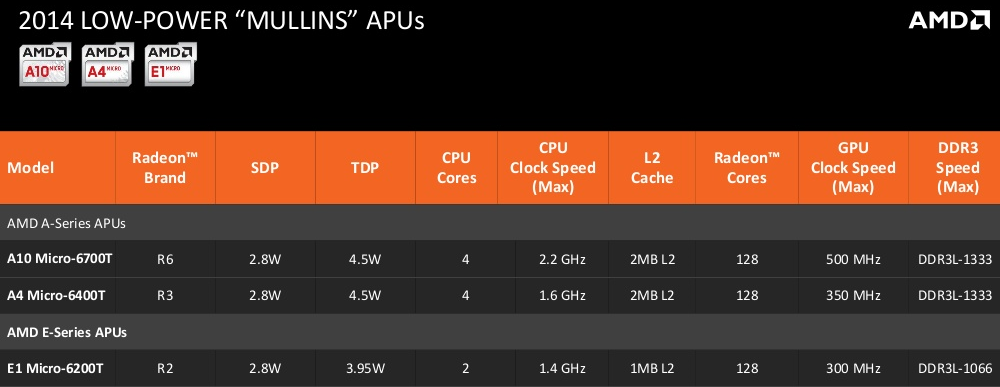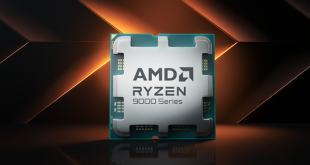While Advanced Micro Devices was late to market with its chips for netbooks, the company’s accelerated processing units for inexpensive low-power laptops are quite popular nowadays thanks to relatively high performance, rich functionality and low cost. Unfortunately, AMD’s APUs designed for tablets still have not become any popular.
Although AMD recently announced its third-generation accelerated processing unit designed specifically for tablets (code-named Mullins), so far no hardware maker has publicly disclosed plans to use it. By contrast, less power-efficient Beema chip for notebooks is gaining design wins with select PC makers.
“In terms of tablets, we haven’t been disclosing the design wins. But it’s fair to say that within [AMD] the focus is on the mainstream, value and premium clamshells,” said Bernd Lienhard, AMD corporate vice president and general manager of client products, in a conversation with VR-Zone. “Where we are today with the products given the performance and graphics, that’s the best fit for us and we believe that’s where our value sits so that’s what we’re going to focus on.”
There are several reasons why AMD's chips are not accepted by tablet makers. Firstly, AMD's APUs do not support Google Android operating system, which is by far more popular than Microsoft Windows 8 on the market of tablets. Secondly, AMD does not provide enough support when it comes to integration of its processors, hence, it is rather expensive for tablet makers to design new slates from the ground up with no assistance or incentives from AMD. By contrast, Intel Corp. not only helps to develop tablets based on its chips, but also provides marketing funds to manufacturers.
But while AMD has troubles winning designs with smaller tablet makers, it claims that certain large PC vendors plan to adopt the Mullins chip for their slates.
“We have engaged with ‘the top three’ OEMs in the world to handpick some of the platforms in the tablet space, and we probably have to wait on them to announce it,” said Mr. Lienhard.
Discuss on our Facebook page, HERE.
KitGuru Says: It looks like before AMD unveils ARM-based system-on-chips for tablets and supports Google Android operating system (which is expected to happen in 2015) its processors for slates will continue to be rather unpopular, especially among smaller manufacturers.
 KitGuru KitGuru.net – Tech News | Hardware News | Hardware Reviews | IOS | Mobile | Gaming | Graphics Cards
KitGuru KitGuru.net – Tech News | Hardware News | Hardware Reviews | IOS | Mobile | Gaming | Graphics Cards




Mullins is getting supported with Linux Kernel 3.15
Kernel support dosen’t come quickly.